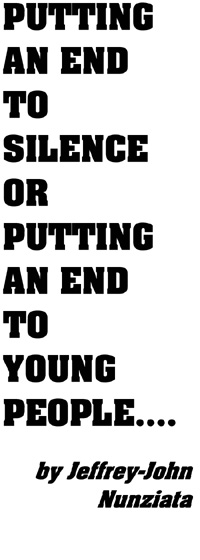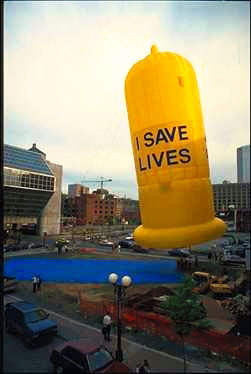 So what exactly is it like to be a young person today?
So what exactly is it like to be a young person today?
Depending on what adult you ask, you seem to get an answer somewhat twisted and usually way off base. Ask any number of young people and you’ll get that many different answers. There is no set blueprint on how to be a young person and yet, the experiences of youth are somewhat similar. A Recent study conducted by the State of Florida is the very first study of its kind conducted in Florida, surveying 1,126 young people between the ages of 12 and 25 in the Tampa Bay area. Some of what was found paints a somewhat dark picture of what it is like to be a young person in the Tampa Bay area. Kick your shoes off and join us as we get our feet wet diving in head first into what is really going on with young people.
“I’m only happy when I skateboard. Otherwise my life sucks.”
Only 40% of all of the youth we spoke with like themselves and 46% are happy at least half of the time. It appears that a majority of the young people are experiencing some level of low self esteem and self worth. It is hard for many young people who do not like themselves or are not happy to do good in school, at home or in many other aspects of life. Lots of comments were made about all of the pressures that society places on young people and how so many of them are falling short of the expectations that everyone else seems to have of them. “All I want to do is just live my life the best way I can, and it is like everyone else has some other direction they want me to go in.” Most of the young people, 84%, felt that their friends understood them. It appears that there seems to be a widening gap of communication between young people and their parents. Only 39% of young people got along with their parents half the time or more and only 28% felt that their parents understood them. Many of the young people we spoke with made jokes and sarcastic comments about how they communicate with their parents. “I never even see them, so I’m not really sure.”
“I think I’m straight because I only dig betties.”
Sixty-four percent of the participants identified themselves as straight/heterosexual, while 19% were bisexual and 14% were gay. The number of young people who identified themselves as bisexual was somewhat surprising. It also seems that young people are more comfortable with communicating their sexuality and seem to be more honest than most adults. The comfort level of open discussion of human sexuality is important, especially considering how low many young people view themselves. This is at least one area where young people seemed to have felt comfortable about who they are regardless of all the societal prejudices thrown at them from our television, shock radio, out of touch religions and a government that has no idea of what young people desire or need.
“Did you check out the guy sleeping standing up? Mr. Roofie was paying a visit there.”
In regards to the substances used, the substance most commonly used was not alcohol, but pot with 90% of all of the young people surveyed having used it. We were very surprised to see that only 18% have used heroine, especially with all of the shock news stories about how endemic heroine use is with young people. Heroine was the drug least used by the young people we spoke with. 47% have tried or use X, 59% cocaine, 48% roofies, 29% special k, and 28% crack. The youths who seemed to be the least likely to use drugs considered themselves straightedge. Some of the straightedge youth we spoke with shared stories about how they have seen some of their friends fall victim to drugs, and others seemed to have nothing but contempt for their peers who were using drugs. “Man, if you are fucked up to use ‘H’ then you deserve to get what happens to you.”
“Yeah I have. Everyone has unprotected sex now and then.”
Only 16% of the people who have had sex use condoms all of the time. Many of the young people made it clear that they did not want to have unprotected sex, but in many situations it was unavoidable. In many cases young people may have only had one condom left and then they went to use it and it broke, and so they had sex anyway. There were also many other situations where young people did not have the money to buy condoms or the place where they got condoms for free had run out. Eighty-nine percent claimed to have had unprotected sex while stoned or drunk. “Like you’re stoned and go to put your last condom on and it breaks, you do it anyway, you know.” With all of the unsafe sex going on and all of the HIV/AIDS information out there, only 44% of those engaging in unsafe sex are actually worried about it. There was almost a feeling of no control on the part of many young people; that it is natural to have unprotected sex and that “everyone does it.”
 “I know I’m at risk and I wish I wasn’t. It scares me to death, guy.”
“I know I’m at risk and I wish I wasn’t. It scares me to death, guy.”
Only forty-nine percent believe they are at risk for HIV infection even with all of the previously mentioned information about unsafe activity. There was an overwhelming sense of denial on the part of many people we spoke with. Regardless of all of the information they have about HIV/AIDS and other STDs, there was still this prevailing sense of invincibility. There were stories about their friends or siblings who had unsafe sex and have never gotten anything. There was also a large amount of animosity towards adults for using scare tactics to get young people to practice abstinence. Others held a belief that HIV was something that only happened to junkies, homosexuals and older people. “I don’t know anyone at my school with AIDS. So why should I worry?”
“Safer sex is like eating the sandwich your mom made you for lunch while it is still wrapped in plastic.”
Seventy-seven percent feel that it is somewhat difficult or hard to have "safer" sex. Considering that even with HIV/AIDS education in the schools, the whole concept of safer sex is barely touched on. There are no step by step demonstrations on how to put a condom on and 94% of all of the participants would rather not have safer sex. This is a serious problem. Another 90% feel that stopping to put on condoms disrupts sex. Maybe if safer sex can be viewed as something erotic and fun, instead of a chore, more people would be willing to practice it. But where can we get these messages to all of our young people? Unfortunately, it does not appear that the school boards will allow the eroticization of safer sex to be taught in schools since they won’t even allow teachers to fully discuss condoms. If not the schools, where should young people turn to for this information? 69% have a hard time saying no to sex, and as they are asked to have sex, they revert back to what they know and what they have been taught, and it is not enough to save them.
“You don’t talk about sex, you just do it. Duh!”
With over half of the young people surveyed, 52% find it hard talking to their sex partner about sex. As a society, we are taught from an early age to not talk about sex and sexuality. As we get older, we are surrounded by images of sex, selling everything from hair spray and cologne to cigarettes. Sexual messages are on our television commercials, our videos and our billboards. And then the vocal minority say “just say no to sex.” No wonder so many teens are confused and don’t know what to do. On one hand parents and other adults are saying don’t do it and all around them is visual stimuli. Most of the teens surveyed don’t communicate properly with their sexual partners because they have never been taught how to do so. Only 29% actually trust their sex partners and only 8% would tell their sex partner if they cheated on them. There seems to be a continuation of cynicism from older generations that has effectively been passed on to young people. There is a widespread feeling of mistrust of sex partners, and more mistrust of men than women.
“So now what do we do?”
That’s a good question.... What do we do? If you are a young person reading this, you need to consider the fact that there are things you can do. First of all, many of your peers have stated that they are at risk for HIV and there needs to be more comprehensive HIV/AIDS education programs. The best place to do this would be where young people learn, schools. But how do we get the schools to do this and initiate needed changes in sex education/HIV curriculum? Well it’s your life and the lives of your friends, so consider taking some drastic steps. “Come out” to your parents about the fact that you're having sex or that people you know are. Tell them you deserve to have appropriate education that can protect you and your friends. You need to talk to your parents and let them know that they have to call the school administration and school board and let them know how you feel. Get together a group of your friends and sit down, rationally, with school administrators and show up at school board meetings. Get your parents on your side. Tell them you care about what is going on and that YOU want to see a change. Try it. And keep showing up. Get more of your friends involved and their parents. Go to the PTA meetings with your parents and let them know that you want to do something about this. You have to try.
Anyone can present statistics, but they mean nothing without the support of the community. “If you make enough noise for long enough, they can’t ignore you.” It is sad that HIV is 100% preventable and yet as a society we continue to allow young people to fall victim to this disease because those in control are “uncomfortable” with the topic.
For more information on this study, please write Impact Press or email Jeff at sk8trboy@mindspring.com

Back to August/September '97 Issue
 “I know I’m at risk and I wish I wasn’t. It scares me to death, guy.”
“I know I’m at risk and I wish I wasn’t. It scares me to death, guy.” So what exactly is it like to be a young person today?
So what exactly is it like to be a young person today?